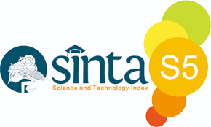Curriculum Administration: Systemic Foundations for the Effectiveness of Islamic Education in the Modern Era
Abstract
Islamic education plays a strategic role in forming a generation of Muslims who are faithful, knowledgeable, and have noble character. To achieve this goal, curriculum administration is a crucial component that must be managed professionally and systematically. In the midst of globalization and the rapid development of technology, Islamic educational institutions are required to continue to innovate in order to remain relevant and competitive. Unfortunately, curriculum administration is often overlooked, even though it has a significant role in determining the effectiveness and quality of education. This article aims to explore the urgency of curriculum administration in the development of effective and quality Islamic education. This research uses the literature study method by analyzing various literature sources, such as books, scientific journals, articles, and relevant policy documents. The results of the study show that curriculum administration in Islamic education must be able to integrate Islamic values holistically into all aspects of learning. In addition, continuous evaluation of the development of learners' soft skills is an important part of ensuring that religious knowledge can be implemented in real life. With good curriculum administration management, Islamic education has the potential to produce graduates who are not only intellectually intelligent, but also superior in morality and readiness to face the challenges of the times.
References
Barnawi, M. A. (2022). The Smart Book of Managing Private Schools. Ar-Ruzz Media.
Cairns, L. (2021). Learning and Work: Theories and Developments. In The SAGE Handbook of Learning and Work. https://doi.org/10.4135/9781529757217.n2
Dean, A. V. (2008). Psychodynamic Theory in Early Childhood Education: A Look at the Contributions of Anna Freud, Melanie Klein, Krik H. Erikson, Susan Isaacs, Bruno Bettelheim, E.C.M. Frijling-Schreuder and Margaret Ribble. The International Journal of Bahamian Studies, 5(4).
Dewi, M. K., & Ferdian, I. R. (2021). Enhancing Islamic Financial Literacy through Community-based Workshops: A Transtheoretical Model. Journal of Islamic Accounting and Business Research, 12(5), 729–747. https://doi.org/10.1108/JIABR-08-2020-0261
Dossey, B. M., Keegan, L., & Guzzetta, C. E. (2021). Holistic Nursing: A Handbook for Practice. Jones, and Bartlett Publishers, Inc.
El-Khuluqo, I. (2025). Early Childhood Education Management. Student Library.
Faujiah, A., Tafsir, A., & Sumadi, S. (2018). Pengembangan Karakter Anak di Indonesia Heritage Foundation (IHF) Depok. Jurnal Penelitian Pendidikan Islam, 6(2), 163. https://doi.org/10.36667/jppi.v6i2.294
Gardner, H. E. (1993). Multiple Intelligences (The Theory in Practice). Basic Books.
Gardner, H. E. (2006). The science of multiple intelligences theory: A response to lynn Waterhouse. Educational Psychologist, 41(4), 227–232. https://doi.org/10.1207/s15326985ep4104_2
Gardner, H. E. (2016). Multiple intelligences: Prelude, theory, and aftermath. Scientists Making a Difference: One Hundred Eminent Behavioral and Brain Scientists Talk about Their Most Important Contributions, 167–170. https://doi.org/10.1017/CBO9781316422250.037
González-Moreira, A., Ferreira, C., & Vidal, J. (2021). Comparative Analysis of the Transition from Early Childhood Education to Primary Education: Factors Affecting Continuity between Stages . European Journal of Educational Research, 10(1), 441–454. https://doi.org/10.12973/eu-jer.10.1.441
Halstead, J. M. (2004). An Islamic Concept of Education. Comparative Education, 40(4), 517–529. http://www.jstor.org/stable/4134624
Hampole, M. V. (2022). Financial Frictions and Human Capital Investments. Working Paper.
Indonesia Government. (2015). Government Regulation of the Republic of Indonesia No 19 of 2005 on National Education Standards. Gema Persada.
Minarti, S. (2016). School Management Managing Educational Institutions Independently. Ar-Ruzz Media.
Mukminin, A. (2021). Teaching Materials for Early Childhood Education Management. Faculty of Education UNES.
Mulyasa, E. (2003). Manajemen Berbasis Madrasah. Didaktika.
Mulyono. (2024). The Concept of Education Financing. Ar-Ruzz Media Group.
Munir, A. (2023). Education Financing Management in Islamic Perspective. Journal of Financing Management, 12(1).
Mustari, M. (2025). Education Management. PT RajaGrafindo Persada.
Nuryani, L. K. (2024). Quality Education Based on Quality Management and Character Based Education. Al-Kawakib (Jurnal Keislaman), 2(2), 1–9.
Perdana, N. S. (2024). Unit Operational Cost Analysis of Holistic Integrative Kindergarten. Journal of Obsession: Journal of Early Childhood Education, 5(1), 187.
Sallis, E. (2012). Total Quality Management in Education. Ircisod,.
Sit, M. (2018). Psikologi Perkembangan Anak Usia Dini. Grasindo.
Situmeang, R., Pohan, S., & Hadia Lubis, R. (2024). School Financial Management of Kalam Kudus Kindergarten Sibolga 2022/2023. Cemerlang, Journal of Business Management and Economics, 2(4), 180–190.
Sutarman, M., & Asih. (2016). Early Childhood Education Management Philosophy, Concepts, Principles, and Applications. Faithful Library.
Viphindrartin, S., & Bawono, S. (2021). Education, Health and Technology in Indonesia’s Economic Recovery Efforts Based on Three Human Performance Theory. IJEBD (International Journal of Entrepreneurship and Business Development), 4(5). https://doi.org/10.29138/ijebd.v4i5.1495
Wahyuni, H. A. (2022). Peran Pendidikan Pramuka dalam Pembentukan Karakter Bangsa Menuju Pembangunan Nasional. Linggau Journal of Elementary School Education, 2(1), 7–14.
Wirian, O., Agustina, N., & Siahaan, A. (2024). Models of Education Financing. Educate: Journal of Education and Teaching Science, 1(1), 44–56.
Yasin, R., & Jani, M. S. (2013). Islamic Education: The Philosophy, Aim, and Main Features. International Journal of Education and Research, 1(10), 1–18.














